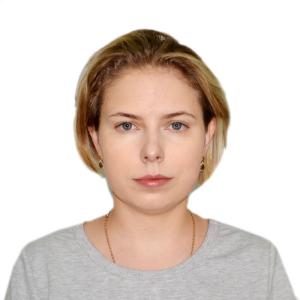Title : Frequencies of genes polymorphisms associated with warfarin dosage in the Kazakh population
Abstract:
Introduction: Statistics show that about 10,000 open heart surgeries are performed in Kazakhstan, with more than 3,000 patients with acquired heart defects. Warfarin is the primary oral anticoagulant to prevent complications after surgery in Kazakhstan. Most studies indicate that the dosage of warfarin, considering the genotype, increases the safety of anticoagulant therapy, reduces side effects, and provides a stable therapeutic dose and the effectiveness of therapy.
Objectives: The study aims to investigate the frequency of minor alleles of CYP2C9 *2 (rs1799853), *3 (rs1057910), *5 (rs28371686) and *6 (rs9332131), CYP2C19 (rs3814637), VKORC1 (rs9934438), CYP4F2 (rs2108622), and GGCX (rs11676382) genes in the Kazakh population. This research will be conducted in an ethnically homogeneous population of Kazakhs and compared with previously studied populations worldwide for a comprehensive understanding.
Methods: The study was based on the genomic database of 1900 conditionally healthy individuals of Kazakh nationality. These individuals were genotyped using the Illumina OmniChip 2.5, which assessed approximately 2.5 million SNPs at the Iceland Genomic Center DECODE. This research was part of the InterPregGen project under the 7th EU Framework Program, the Grant Agreement number 282540; AP19677439 “Pharmacogenetics of indirect-acting anticoagulants in patients with heart surgery” – Kazakhstan state registration number 0123??01103.
Results: The frequency of minor alleles rs1799853 CYP2C9*2 gene (3.5%) and rs1057910 CYP2C9*3 gene (6.9%) in Kazakhs are intermediate compared with European and Asian populations. However, the previous GWAS studies have been inconsistent, which indicates that genetic markers are not universally applicable for warfarin dosing across different ethnic populations. Therefore, it is crucial to replicate these findings in each specific ethnic population.
The frequency of the minor allele of the “European” rs2108622 CYP4F2 gene in Kazakhs is comparable with indicators in Europe (p>0.05), and revealed an intermediate frequency between the populations of East and South Asia (p<0.05).
The frequency of the “Asian” minor allele rs11676382 GGCX gene is higher in the Kazakh population - 14.4%, compared to European and Asian populations. We suggest that SNP can affect warfarin dosage in people of Kazakh nationality.
In the Kazakh population, the frequency of the minor allele of rs9923231 of the VKORC1 gene is 28.8%, which is significantly higher (p<0.001) than in South Asian populations such as Bangladesh (15.7%), India (17.5%), and Pakistan (19.8%). However, it is significantly lower compared to England (35.7%), Spain (36.0%), and Italy (47.7%), as well as populations of East Asia such as China (89.0%), Japan (90.0%), and Vietnam (84.3%).
Conclusion: Ethnicity affects the average daily dose of warfarin due to differences in the population frequencies of minor alleles of genes associated with warfarin pharmacogenetics.
The results reflect the features of the Kazakh population structure, which is formed due to complex evolutionary and migration processes and its median geographical position between Asia and Europe. A comparative analysis of SNPs associated with warfarin metabolism in the Kazakh population showed their intermediate position between the previously studied populations.
Keywords: pharmacogenetics, warfarin dosage, gene, SNPs, ethnicity, population genetics.
Audience Take Away:
- Prevalence of minor alleles of specific genes in Kazakh population, including CYP2C9*2, CYP2C9*3, CYP4F2, VKORC1, and GGCX
- Comparison of these results with other ethnic populations worldwide
- The significance of these findings in determining personalized warfarin dosage



